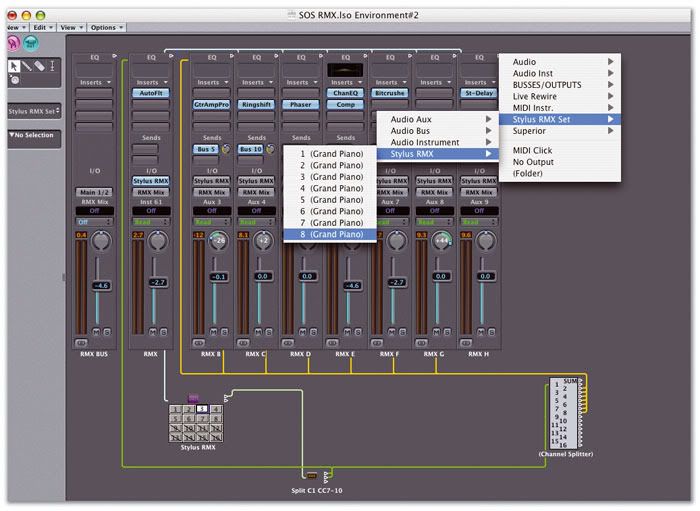James Steele wrote:Well, here I am justifying a decision I made to you again. This feels awfully familiar. So here... I'll try and explain it as best I can. This is NOT about using DP per say. This is a "convince-me-to-use-DP" thread which really doesn't fit in the DP Forum since this is crossing over in to generaly "comparative DAW" blather that wastes space and really goes in the "theoretical discussions" and off-topic area.
Easy there, James, I wasn't asking for justification (and you'll have to cite where I've asked you for justification on
anything in this forum previously), just seemed weird that we were discussing DP in a positive light and it got moved to a different section (and one marked "Gripes"). While it makes sense, since we're comparing DP to other DAWS, we are listing all the positive attributes of the software, so it threw me for a loop. Anyhoo ...
Does anyone know why programs like Logic have to make their internal routing schematic so overly complicated? Cubase is the same way, so are a few other DAWS. DP makes sense in that it all happens "under the hood"; you just assume when you set up sends or bus an output to a certain auxiliary channel,
that's where it goes. I don't even think ProTools gets that complicated!
charlesparente wrote:After switching to the Mac in 2001 for all my audio work, I started with Logic version 5.
The problem for me was that I never got comfortable with the MIDI workflow in Logic. I tried very hard to truly learn the ins/outs of Logic [environment/transformers, etc].
And as the years went by, I started doing more and more MIDI vi work, Logic just kept driving me crazy.
While Apple continues to advance the audio side of Logic, I feel like the MIDI side has just been left to rot.
For me the MIDI handling/editing in DP is so much better.
That's the huge benefit for me since switching to DP.
I also like the consolidated window very much. I always felt in Logic like I needed a second monitor, but one monitor seems to display so much more information for me in DP. [But using Spaces in DP, or any program, is very slick!]
I think you will find that all of the DAWs have their pluses and minuses.
They are all completely miraculous programs, when you stop and think about it.
Digital Performer started out as a MIDI-only sequencer, ProTools started out as an audio-only program, Cubase started out as Steinberg's showcase for its proprietary VST algorithm and Logic started out as eMagic's incredibly complicated, expensive and elitist ... well, I'm not even sure what kind of program it was originally intended to be. DP evolved somewhat naturally into a full-featured DAW, and by all accounts, so did ProTools (though, like all DAWs of this ilk, they seem incapable of putting together a comprehensive standard of MIDI tools, like DP has, that would make it useful), Cubase merged its tools with its more expensive brother, Nuendo, thus ensuring that most of its subsequent updates would be as buggy as possible and Logic got bought by Apple, who seems to think that the best way to keep its customer base happy is to continue keeping it
illogically complex (sort of like Windoze) and adding as many extras as possible to keep everyone from realizing its shortcomings. I'm not even sure you can use the argument that Logic is intended to be professional-caliber DAW software, since Final Cut Pro, Apple's pro-level editing software, comes with Soundtrack Pro, which is intended to be used as multi-track post audio software (though, if memory serves, they've since folded that up into Logic).
I think the variety of DAWs available means everyone can find one to suit their own workflow, and that's really the thing: you have to find the one that corresponds best to your own workflow. Download demos, get on forums, go to music stores with DAW demos already set up and running and tool around with them.
